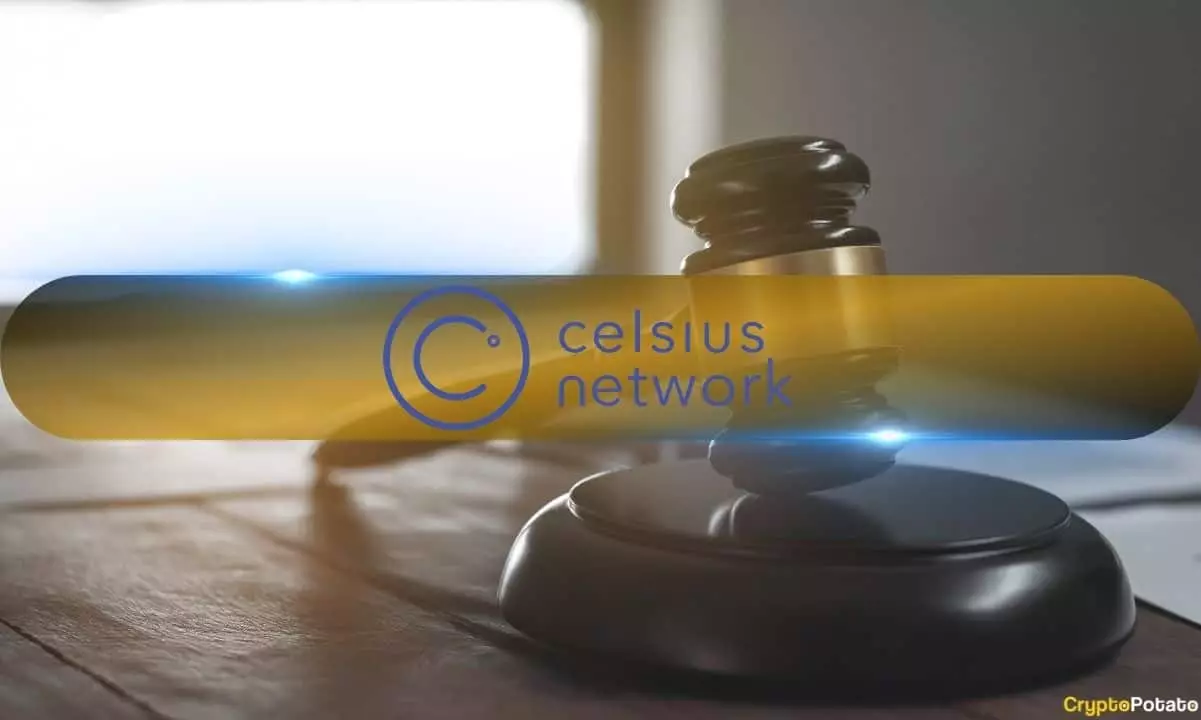In a groundbreaking decision, a Southern District of New York Bankruptcy Judge has sanctioned Celsius Network’s proposal to utilize non-fungible tokens (NFTs) for serving legal notices amid its ongoing bankruptcy proceedings. This innovative approach is particularly significant given the complexities associated with cryptocurrency transactions and the anonymity they often afford to users. Celsius is in the process of addressing capital recovery issues stemming from alleged fraudulent transfers made to unidentified digital wallets. The company’s legal maneuvers, necessitated by these challenges, highlight the urgent need for the legal system to adapt to evolving technological landscapes.
One of the primary challenges faced by Celsius is the veiled nature of cryptocurrency operations. The judiciary system relies heavily on the ability to establish the identity of the parties involved in a transaction, a task complicated by the pseudonymous traits of blockchain transactions. Celsius’s predicament embodies a broader issue in modern finance: how to reconcile the swift digital evolution with traditional legal frameworks. As it stands, a considerable number of cryptocurrency exchanges and wallets allow users to remain anonymous, making it nearly impossible for Celsius to pinpoint those behind suspicious transactions. Consequently, the company’s recourse to void fraudulent transactions has hit numerous snags as traditional methods of serving legal notices have proved inefficient.
To tackle this convoluted issue, Celsius introduced an inventive solution by employing NFTs to serve legal notices directly to the wallets implicated in its bankruptcy case. Each NFT crafted for this purpose is embedded with a hyperlink that leads recipients to a dedicated website hosting the legal complaint and other pertinent documents. In essence, these digital tokens act as digital summons, intended to ensure that the individuals behind the wallets review the legal actions taken against them.
Celsius’s strategy is further bolstered by its partnership with FTI Consulting, which will oversee the process of ensuring that each NFT is indeed received and accessed correctly. This collaboration adds a layer of accountability, as FTI will track the on-chain receipt of the NFTs and monitor access to the linked documents. By doing so, the legitimacy of the notifications can be assured—confirming that they engage real individuals, rather than automated bots, thus reinforcing the process’s integrity.
Judiciary endorsement of this NFT-based notification method signifies a monumental shift in how legal notices may be served in the digital realm. Bankruptcy Judge Martin Glenn noted that the permission to serve legal notices through NFTs was an effective solution in light of the impracticalities associated with traditional methods, such as mailing legal notices to physical addresses—often futile endeavors given the anonymous nature of cryptocurrency. This ruling aligns with New York laws that authorize alternative service methods when conventional approaches prove ineffective, provided that such methods still conform to constitutional due process.
The court’s acceptance of NFTs as a viable service method suggests a transformative era for legal frameworks, particularly regarding how digital assets and emerging technologies can be integrated into the legal process. The comparisons drawn by Judge Glenn between this new methodology and the early acceptance of email in legal service underscore a pivotal moment where traditional practices are undergoing a fundamental rethinking.
Celsius Network’s innovative approach not only opens new avenues for serving legal notices but also serves as a precedent for other entities navigating similar situations in the cryptocurrency sphere. As digital currencies and blockchain technology continue to gain traction, the need for legal standards and practices that keep pace is paramount. This development poses an important question for the future: will NFTs and other blockchain solutions become a standard method for legal notifications?
The use of NFTs for serving legal notices marks a potentially transformative moment in the intersection of technology and law, illustrating how forward-thinking solutions can address contemporary challenges in novel ways. As bankruptcy cases increasingly intersect with digital assets, the legal community must remain vigilant and adaptable, ensuring that justice is not obstructed by technological barriers.

